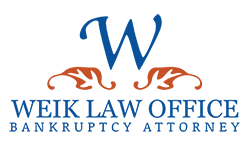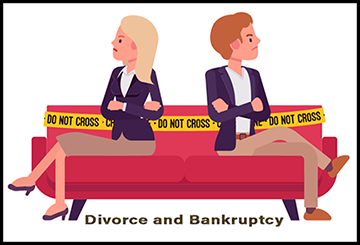GET HELP TODAY
Divorce is emotionally draining and financially taxing, especially when you’re dealing with crushing debt at the same time.
If this applies to you, you might be wondering if filing for either Chapter 7 or Chapter 13 bankruptcy in Raleigh can help. The answer is yes, but it’s important to understand how the two processes can affect each other.
Can You File for Bankruptcy During a Divorce?
Yes, it is possible to file for bankruptcy while going through a divorce. In fact, many people choose to do so because they want to clarify the debt situation before officially ending their marriage.
Still, the complexity of your marriage will have a significant impact on how the process plays out. If one spouse was the breadwinner and the other was a stay-at-home parent, the former may be required to pay alimony. Spousal alimony cannot be discharged under bankruptcy, so it will affect your payment plan under Chapter 13.
Kids complicate matters further. Similar alimony, a bankruptcy won’t discharge or cancel your child support payments. That’s why a custody arrangement will affect your bankruptcy filing as well.
Add other factors like joint properties, and it can quickly get overwhelming. We invite you to sit down with Attorney Weik to help you decide the best way to move forward.
Divorce, Joint Properties, and Bankruptcy Exemptions
You can file a joint bankruptcy petition or file separately. When filing jointly with your spouse, all of your assets become part of the bankruptcy estate. This means that all of these assets will be subject to liquidation by the court if they don’t qualify as exempt property.
In North Carolina, debtors are allowed to claim certain types of property as “exempt” from liquidation during bankruptcy proceedings – such as their primary residence or vehicle. Filing jointly can double these exemptions, which can be a smart move if you own a significant amount in assets. Otherwise, you may not be able to keep as much under individual exemption.
If you’d rather file separately, mention it during your consultation with Attorney Weik for guidance on the matter.
Important note: the liability of each spouse to creditors is not affected by the division of debts in divorce. For instance, a creditor can still come after you if your spouse fails to pay. Again, this depends on your particular situation, but being aware of the possibility helps you avoid being blindsided by debt collectors.
Talk To Attorney Weik About Your Options
Divorce can complicate the already stressful matter of massive debt. Attorney Weik will help you explore your options so you can benefit as much as possible from the bankruptcy process.
Call Weik Law Office today at 919-845-7721 for a free consultation, and set up a time to speak with one of our friendly professionals. We look forward to hearing from you soon!


